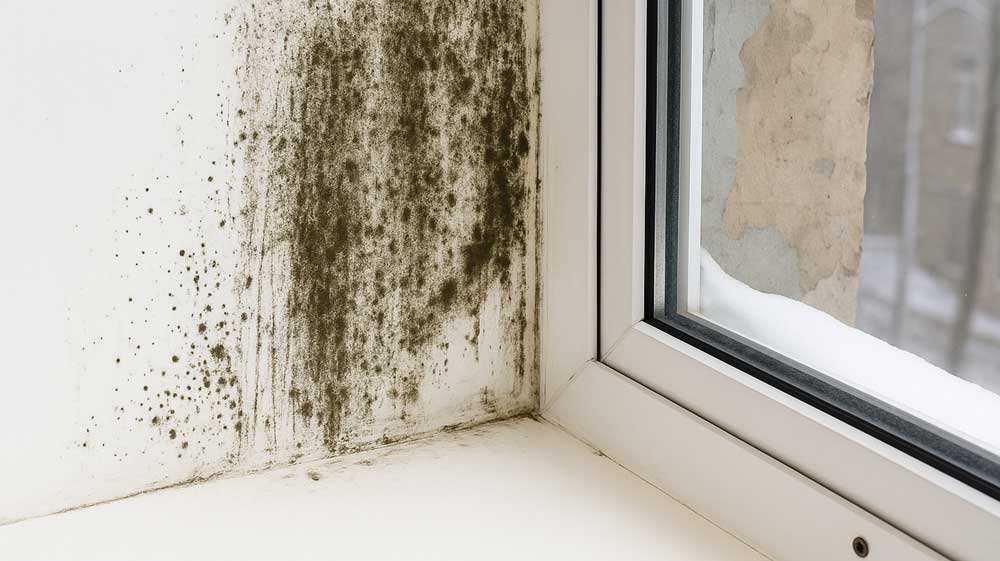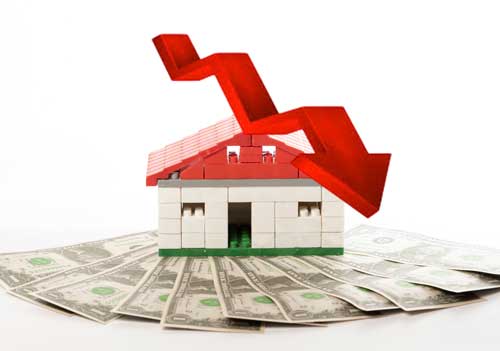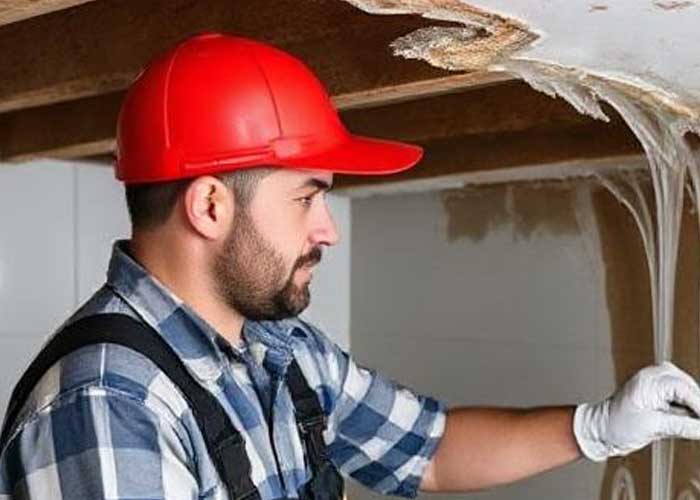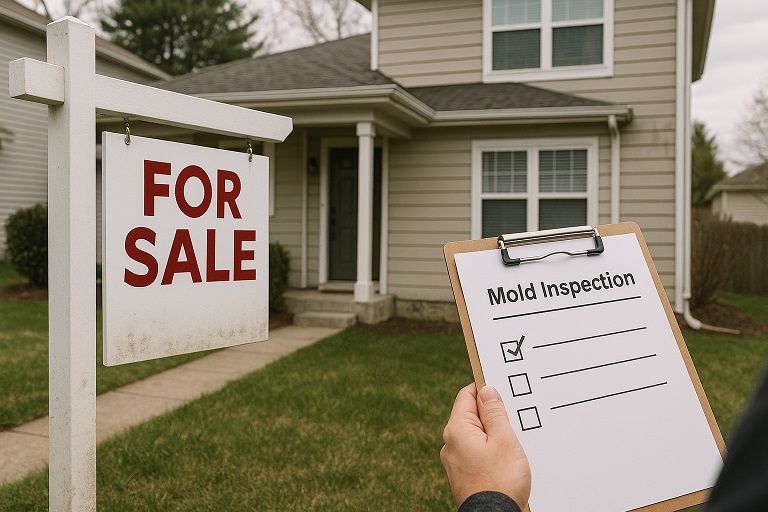Discover how mold impacts real estate transactions. Learn what buyers, sellers, and landlords must know about mold inspections, property value, legal obligations, and insurance coverage.
Mold isn’t just an eyesore or a smell you can ignore—it can kill a real estate deal, lower property value, and expose landlords and homeowners to legal and financial risk. Whether you’re buying, selling, or managing a home or rental property, mold is something you can’t afford to overlook.
In this guide, we break down everything you need to know about mold and real estate: from inspections and insurance to legal responsibilities and practical tips for keeping mold at bay.
What Is Mold and Why Does It Matter in Real Estate?

Mold is a type of fungus that thrives in damp, humid conditions. It spreads through spores and often appears as black, green, or white patches on walls, ceilings, or floors.
In real estate, mold matters because:
- It poses serious health risks, especially for people with allergies or respiratory issues.
- It can cause structural damage to homes.
- It can lead to failed inspections, reduced appraisals, and deal cancellations.
- It raises liability issues for landlords and sellers.
How Mold Affects Property Value

Mold can tank a home’s value—fast.
- Buyers may walk away after a mold discovery.
- Appraisers may reduce the home’s value if mold is present.
- Even after remediation, a mold history can stigmatize the property, lowering buyer confidence.
Related Post:
How Mold Affects Home Appraisal and Loan Approvals!
Selling a Home? Know Your Mold Disclosure Duties
In most U.S. states, sellers are legally required to disclose any known mold problems. Failing to do so could lead to lawsuits, canceled contracts, or forced buybacks.
Mold Disclosure Tips for Sellers:
- Order a mold inspection before listing.
- Fix any issues before showings.
- Be upfront with buyers—honesty builds trust.
Related Post:
Selling Your Home? Why a Mold Inspection Can Save Your Deal!
Can You Sell a Home with Mold? What Buyers and Sellers Should Know!
Failed a Home Inspection Due to Mold? Here’s What To Do

If a home fails inspection because of mold, the sale may stall or fall through. But all hope isn’t lost.
Quick Fix Steps:
- Hire a certified mold remediation company immediately.
- Fix the root cause (e.g., leaks, poor ventilation).
- Request a re-inspection and keep documentation for transparency.
Related Post:
Failed a Home Inspection Because of Mold? Here’s How to Fix It Fast!
Buying a Home? Why You Must Check for Mold

Mold isn’t always visible. Hidden mold can cost you thousands after closing.
Homebuyer Tips:
- Get a professional mold inspection during due diligence.
- Ask the seller for disclosure forms.
- Look for musty smells, water stains, and poorly ventilated areas.
Related Post:
Thinking of Buying a Home? Why You Should Check for Mold First!
Landlord Responsibilities: What the Law Says About Mold

Legal Risks for Landlords:
- Lawsuits for negligence or health impacts
- Rent withholding or repair-and-deduct actions by tenants
- Fines or orders from local housing departments
Best Practices:
- Conduct regular inspections.
- Address leaks and moisture issues immediately.
- Educate tenants on reporting mold early.
Does Homeowners Insurance Cover Mold?

It depends. Most standard homeowners insurance policies only cover mold when it’s caused by a covered peril, like a burst pipe. Mold from long-term leaks or poor maintenance usually isn’t covered.
Tips:
- Review your policy.
- Consider mold-specific endorsements or riders.
- Document all water damage events.
Related Post:
Does Homeowners Insurance Cover Mold Removal? What to Know!
How to Prevent Mold Before It Starts

Prevention is always cheaper than remediation. Here’s how to keep mold away:
- Fix plumbing leaks quickly.
- Use dehumidifiers in damp areas.
- Ensure proper ventilation in bathrooms and kitchens.
- Keep gutters clean and direct water away from the home’s foundation.
Final Thoughts: Mold and Real Estate Don’t Mix—Unless You’re Prepared
Mold can turn a smooth real estate deal into a nightmare if left unchecked. Whether you’re buying, selling, or managing property, understanding mold’s impact—and how to prevent or address it—is critical to protecting your investment and health.
Don’t let mold cost you thousands. Be proactive, get inspections, and take mold seriously.
📚 More Helpful Reads:
- Selling Your Home? Why a Mold Inspection Can Save Your Deal!
- Can You Sell a Home with Mold? What Buyers and Sellers Should Know!
- Failed a Home Inspection Because of Mold? Here’s How to Fix It Fast!
- Thinking of Buying a Home? Why You Should Check for Mold First!
- Does Homeowners Insurance Cover Mold Removal? What to Know!
- How Mold Affects Home Appraisals and Loan Approvals!


